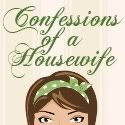The Problem with ‘Utopia’
When I was a young girl, first learning the ways of consumerism and just beginning to grasp the idea that there were many living in poverty while I lived in plenty, I suggested to my father that everyone ought to live in villages and trade. One person could be the farmer, another could make cloths, one would cook, etc. This, I believed would eliminate both want and greed. My dad would jokingly call me a ‘communist’ and then try to explain to me why this would never work. Secretly, I didn’t believe him. It wasn’t until adulthood that I put down my communist bent and began to see things through a more realistic view. Politics aside, I believe we are all born with a desire for utopia. We were created to desire peace and love but we were also born with a sin nature which prevents us from ever achieving the perfect world on this earth. At first glance, when reading Utopia by Thomas More, the question might be, “Who wouldn’t want to live in this make believe world of perfection?” Yet, soon, this piece of literature begins to show signs not only of lofty fantasy but also elements of realistic flaws. Governmental control is essentially what ensues when perfection of a people is sought. In a fairy tale city like Utopia, the author may well write of dealing with overpopulation by simply moving adults out of overcrowded households, families out of overpopulated cities and weave stories of natives and settlers who, “gradually and easily blend together, sharing the same way of life and customs…”(Greenblatt 554). Real life has proven time and again, that despite reason and religion, much work is needed to achieve a peaceful blending of cultures.
Humans deal with pride. We fight the urge to feel that we are better than others. This is why the Bible says “…but in humility consider others better than yourselves” (NIV, Philippians 2:3). It appears More is of this belief, yet he contradicts himself by writing that the slaves of Utopia, “do the slaughtering and cleaning in these places; citizens are not allowed to do such work” (Greenblat 554). Were slaves less than human? Were the sick and elderly less human? In Utopia, when one is severely sick or quite old he is reminded that “he is now unfit for any of life’s duties, a burden to himself and to others; he has really outlived his own death”. Government here has become God. Ironically, earlier in his book More criticizes the argument that “God’s law against killing does not apply where human laws allow it” (Greenblatt 533) when speaking of the death penalty for thieves. Yet, here we see in Utopia euthanasia encouraged as a matter of convenience. This reminds me of Proverbs 14:12 which states that, “There is a way that seems right to a man but in the end it leads to death”. ‘Utopia’ is an example of man’s good intentions and desires twisted by his own limited understanding and faulty wisdom. An absurd example of human ego in this story is that of how those who wish to marry are allowed to view each other naked prior to the wedding, the thought being that perhaps one or the other might possess a deformity which would cause the other to ‘hate’ their spouse for the duration of the marriage. More seems to try to clean it up with the honest admission that humans truly do care about more than character, yet this also exemplifies what happens when people are not transformed by the renewing of their minds (Romans 12:2).
To live in Utopia, one would have to believe in the good of mankind. One would have to live out this good. Utopia is a world where the leaders were pure of heart, no one sought for more than they needed, members of the church were always of good motive and war was only waged when absolutely necessary. Would I want to live there? I believe I will some day when I arrive in Heaven. I would not, however, wish to live in a place on earth which was trying to achieve Utopia, as the cost would be too great. My trust is in God, not man. When man sets himself up as God and attempts to create his own version of perfection, which belongs to God alone, the result can only be a misguided and false trust of authority which truly can lead to death.
Works Cited
Greenblatt, Stephen and Abrams, M.H. The Norton Anthology of English Literature. Vol. A. New York: W.W. Norton & Company, 2006. Print.
Life Application Study Bible. Ed. Ronald A. Beers. Illinois: Tyndale House Publishers, Inc., 1984. Print.

















No comments:
Post a Comment